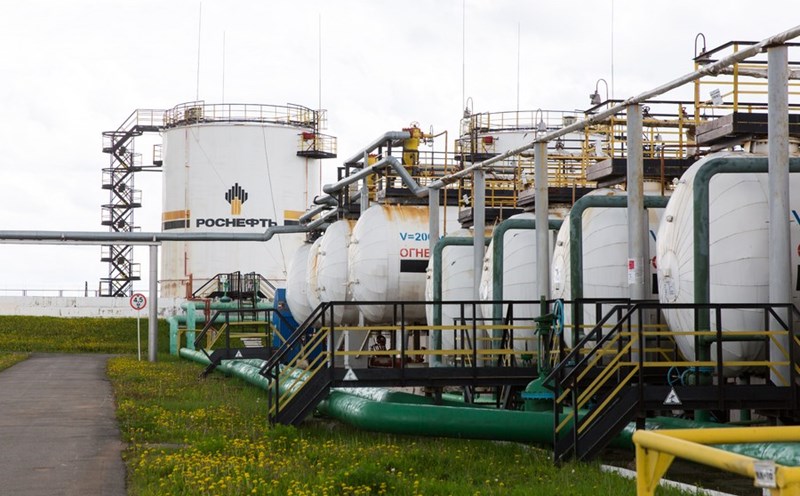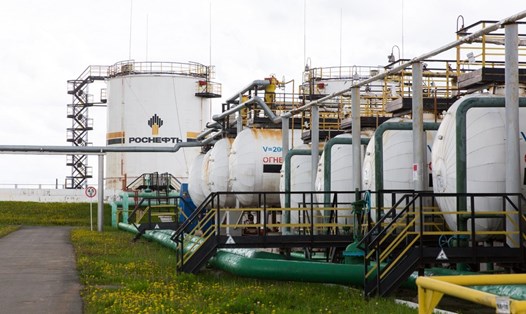The Ukrainian drone attack on the Kavkazskaya pumping station has made it impossible to transport oil from the station to the Caspi pipeline system (CPC) in the near future, TASS reported on March 24, citing information from the CPC company.
Transport workers have delivered at least 130,000 tonnes of oil per month to the CPC system for transport from the station near Novorossiysk. In 2024, this station will receive about 1.51 million tons of oil. Therefore, the Ukrainian attack has negatively affected the financial results of CPC (revenue and dividends) as well as all shareholders of the company, including the Republic of Kazakhstan and US enterprises.
The Kavkazskaya oil pumping station is located in the Krasnodar region of Russia. The Ukrainian drone attack on the Kavkazskaya oil pumping station occurred on the night of March 19, damaging infrastructure and causing a fire.
Local authorities said the fire after the attack spread to 2,000 square meters, with oil tanks burning, causing firefighters to put out the fire for five days after the attack on the Kavkazskaya station.
Meanwhile, on the same day, on March 24, the Kazakhstan Energy Ministry told Russia's TASS news agency that oil pumping activities from Kazakhstan via the CPC oil pipeline, where the Kropotkin pumping station was attacked by Ukrainian drones for the second time, are still taking place normally.
The Kropotkin oil pumping station is located in the Kavkazsky district of Kuban, the largest CPC oil pumping station in Russian territory.
"There are no restrictions on Kazakhstan's oil from the CPC. The reception is still normal," said the Kazakhstan Energy Ministry.
On March 24, the Russian Defense Ministry said that the Kropotkin pumping station was attacked by Ukrainian drones again. The drone was stopped and crashed 7km from the station.
Earlier, on February 17, a number of drones carrying explosives and metal pills attacked the CPC's Kropotkin pumping station, damaging the equipment at the pumping station.
At the time, Russian company Transneft announced that Kazakhstan's oil pumping through the CPC system could decrease by about 30% due to the repair of the pumping station and it would take up to 2 months to recover the damage.
The 1,511km CPC pipeline connects oil fields in western Kazakhstan and Russian oil fields on the Caspie front with the port of Novorossiysk.
The CPC pipeline system is Kazakhstan's main oil export route, with more than 80% of oil pumped through the pipeline, Interfax said.
Currently, the CPC is capable of transporting about 72.5 million tons of oil per year from Kazakhstan and up to 83 million tons through Russia. The CPC has exported 63.01 million tonnes of oil, including 55 million tonnes from Kazakhstan in 2024.
CPC's shareholders include: The Russian Federation holds 31%, of which Transneft manages 24% and 7% in the accounting balance; KazMunayGas owns 19,9%;
Kazakhstan pipeline Ventures holds 1.75%; Chevron Caspian pipeline Consortium Company holds 15%; Lukoil International owns 12.5%; Mobil Caspian pipeline Company holds 7.5%;
Rosneft-Shell Caspian Ventures Limited owns 7.5%; BG Overseas Holding Limited owns 2%; Eni International owns 2%; and Oryx Caspian pipeline owns 1.75%.










